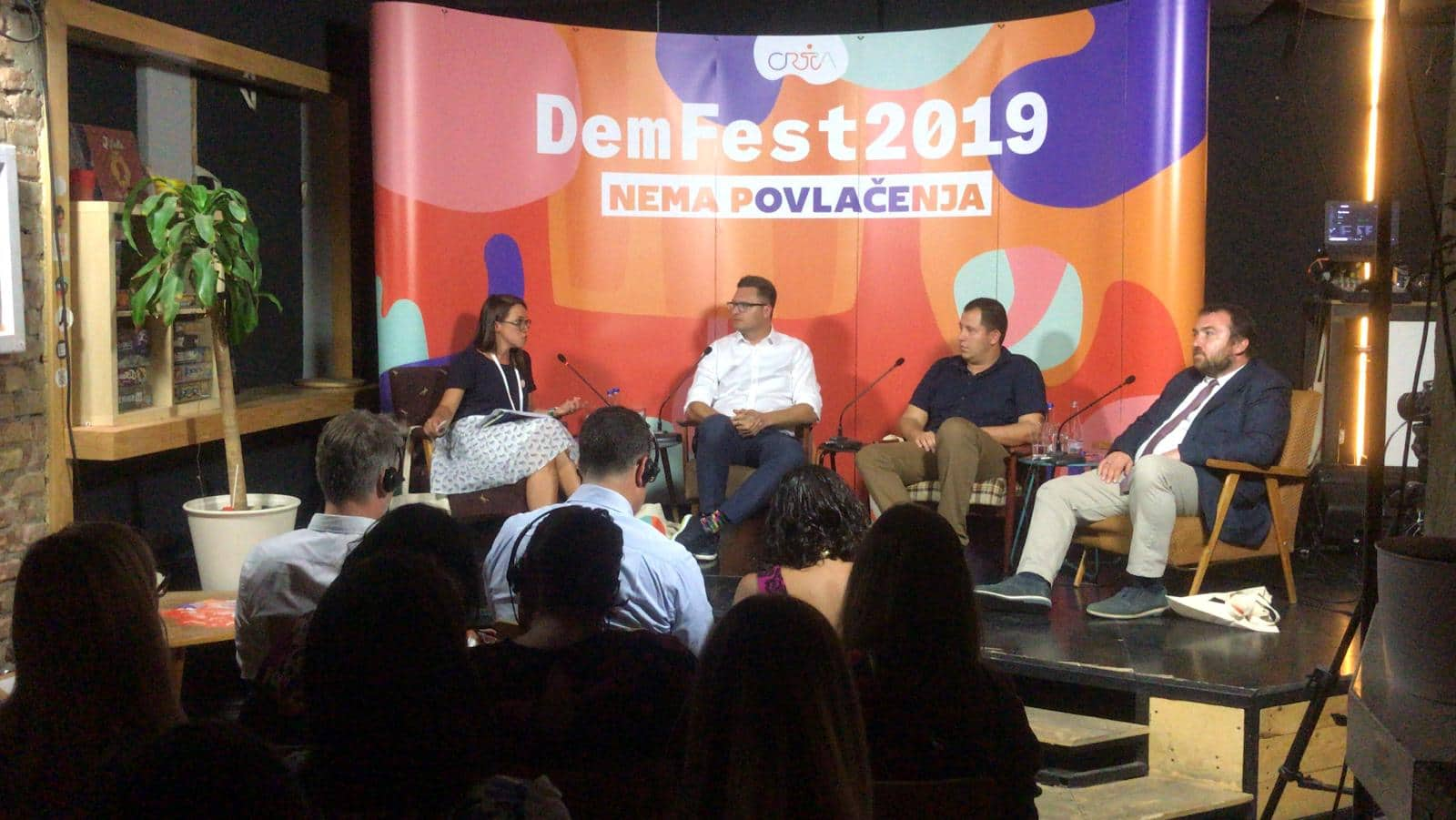Citizens lose confidence in the voters’ register
 Photo by: CRTA
Photo by: CRTA
“Citizens are less and less confident in the up-to-datedness and accuracy of the voters’ register. Although the voter’s register is not the biggest election problem, it certainly is one of the many segments that make the elections free and fair. Losing citizens’ trust negatively affects all the conditions of the electoral process,” was the conclusion brought by the discussion “Everything according to the register?” organised by CRTA within the Festival of Democracy.
Participants in the discussion Marko Ivkovi,ć Program Director for Regional Elections and Political Empowerment at the National Democratic Institute, Raša Nedeljkov, Programme Director at CRTA and Dušan Spasojević, PhD, Assistant Professor at the Faculty of Political Sciences, University of Belgrade, agreed that most conditions in the electoral process require a complete change in electoral legislation, but that the key problems are actually caused by political will.
“International practice indicates that certain fundamental changes cannot be actualised in less than a year. Fundamental changes take time to make the results more effective. Therefore, the recommendations for improving the electoral requirements of CRTA’s organisation are made so that they can be implemented within one year. Also, solutions should be sought in order to find out how to improve the conditions between the two election cycles”, said Marko Ivković.
Ivković also stressed that the goal and the role of civil society organisations and international organisations are not to change political decisions, but to see what extent it is possible to improve the work of institutions, so that decisions that affect citizens’ lives are made transparently and are subject to influence and change.

Photo by: CRTA
“One of the segments of the electoral process that needs to be changed is the confidence of citizens in the electoral process, and the question is what the state has to do to convince its citizens that what they are doing is right. About 60 per cent of citizens believe the voters’ register has not been updated. If more than half of the Serbian population thinks it is wrong, then what is the state doing in order to change that attitude? One of our recommendations is to revise the voters’ register according to the international methodology. In the previous decades, the voters’ register was between the authorities and the opposition, always one side blaming the other. We, as the public, do not know if the register is accurate or not, we can only trust the holders of power”, said Raša Nedeljkov.
Nedeljkov added that it is necessary to increase transparency and the way the state and the administration announce to the citizens what are the moves they are undertaking in order to improve the actual and concrete things in relation to which fears and concerns have been conveyed.
“The voters’ register is important, but above all from the perspective of citizens’ trust. This does not significantly affect the election result itself; there are many other crucial factors that have a negative impact. I would single out the issue of the public sphere and the media, which are a key issue during the election process. When we talk about the media, we can see that the representatives of the authorities are not at all willing to work on improving the whole situation, and that is worrying. It is really difficult to advocate for elections in these conditions”, said Dušan Spasojević.
Spasojević concluded that we live in a society in which boycott attracts more attention than recommendations for improving electoral conditions, which is devastating. But this is due to the situation that probably the recommendations can no longer help.
Watch the broadcast of the full discussion here.








